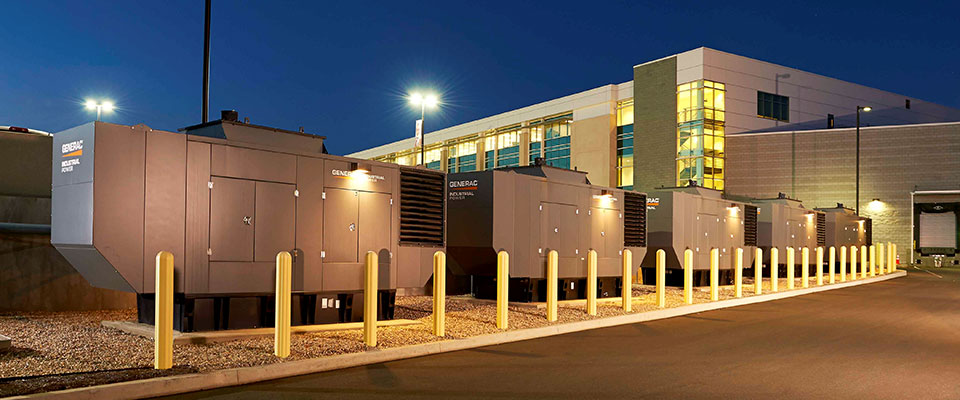Generators For Hospitals For Sale
Hospitals are critical institutions that require reliable power supply to run various critical functions such as lighting, heating, ventilation, air conditioning, medical equipment, and computers. In emergencies, such as natural disasters or power outages, a hospital must continue to function to ensure patients receive the necessary care. To ensure a continuous power supply, hospitals require large industrial-sized generators. In this article, we will discuss the need for large industrial-sized generators in hospitals, the different types of generators, set-ups, sizes, and how to best maintain and service them after installation.
Why Hospitals Need Large Industrial-Sized Generators is obvious but we'll explain nonetheless.

Hospitals are required to operate 24/7, and any power interruption can lead to life-threatening situations. Large industrial-sized generators serve as backup power sources that can provide electricity for an extended period. These generators are capable of handling heavy loads of electricity that are required to operate critical hospital functions. In addition, hospitals need a reliable power source for their critical medical equipment such as ventilators, incubators, and life support machines that need to function even during power outages. Finally, generators serve as a backup power source during emergencies such as natural disasters, which can disrupt the power supply to the hospital.
Different Types of Generators:
There are a few different types of generators available, and hospitals must select the best option based on their specific needs. The most common types of generators used in hospitals are going to be diesel:
-
Diesel Generators: Diesel generators are the most commonly used generators in hospitals. They are efficient, reliable, and can provide power for an extended period. Diesel generators are suitable for hospitals located in remote areas that may not have a reliable power supply.
-
Natural Gas Generators: Natural gas generators are environmentally friendly and are suitable for hospitals that have a natural gas supply. They are efficient and have low emissions. Usually ran in parallel and multiple gen-sets. Just like propane the output is going to be too small for what a hospital (especially a large one) would normally need in the event of an emergency.
-
Propane Generators: Propane generators are not usually suitable for hospitals located in areas prone to natural disasters such as hurricanes, floods, and earthquakes. Propane generators are reliable, efficient, and have a longer shelf life than other types of generators, however they don't have the output of a diesel generator.
Bi-Fuel is a great option for healthcare facilities because it provides the best of both worlds. You meet the on-site fuel requirements of NEC 700 and NFPA 110 because you have a diesel storage tank, but obtain the benefits of longer runtimes as the generator transitions to natural gas under load. Generac offers fully integrated solutions that are the only EPA-compliant generators straight from the factory in both the 500 kW and 600 kW nodes. These units can also be paralleled to create even larger kW requirements. (From Generac)
The biggest question to ask is, if you want to or should go with diesel units, or natural gas.
Keep in mind like your car, generators require constant care. With engine requirements for low-sulfur diesel fuel, the fuel now needs to be re-conditioned every 12-16 months to ensure stability and ease of flow. This fuel requirement, along with the maintenance of the exhaust after treatment system, requires an experienced facility manager to handle this process. If you do not have this person on staff, you would need to turn to a third-party provider for the service, which will add cost. It will also require the rental of a backup generator during servicing when not using a MPS solution.
Maintaining and Servicing Generators
After installation, hospitals must maintain and service their generators to ensure they function correctly when required. The following are some best practices for maintaining and servicing generators:
-
Regularly check the generator's fuel supply and ensure it is adequate.
-
Check the oil level in the generator and change the oil and oil filter regularly.
-
Regularly inspect and clean the air filter to ensure the generator's engine is not clogged.
-
Check the generator's battery and charging system
